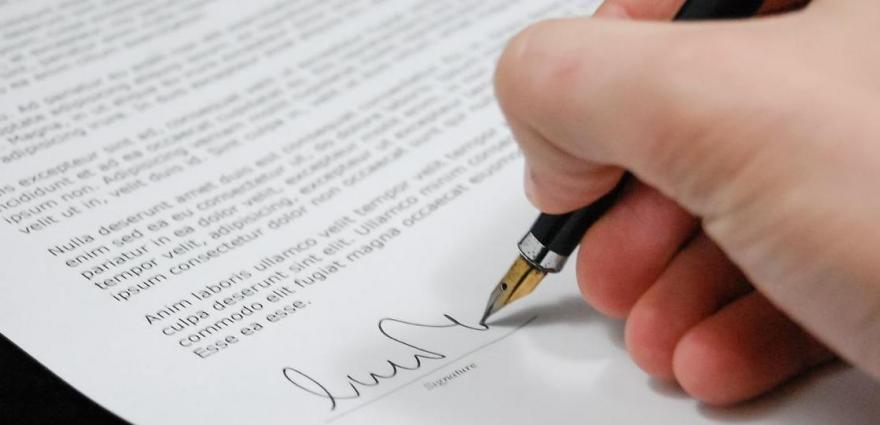Losing a loved one is a difficult and testing time for most, without the added emotional distress of your biological relationship coming into question. When it comes to claims being made on the estate of the deceased, on some occasions a DNA test will be required. Due to the Wills, Trusts, and Claims section of the Inheritance Act 1975, DNA can be used to determine entitlement and resolve estate disputes.
In this guide, we will look at the various functions that DNA testing plays in wills, inheritance, and estate disputes, as well as answer some of the burning questions you may have
Why are DNA Tests Sometimes Required in Inheritance Disputes
Nowadays we have digital systems for everything, but just a couple of generations ago, recordkeeping wasn’t performed quite as well as now. For this reason, and various others, fathers were often left off of birth certificates, making paternity uncertain.
When paternity is not established on a birth certificate, a child making an inheritance claim against their father’s estate can face some difficulties. It’s typically under these circumstances that disputes will lead to DNA testing, which is then able to confirm the entitlement to the inheritance or not.
Who Needs Testing in an Estate Dispute?
Testing the deceased to get a DNA sample is complicated, but not impossible. It depends on how recently deceased the person is, but if the court order is fast enough, they may be able to perform a buccal swap, collect nail clippings, or take DNA from a used toothbrush. All of this can be avoided if the deceased has a DNA record on file.
When a DNA record is not available and cannot be collected, the child who wishes to establish paternity must seek a blood relative of their deceased father - most commonly this is done by testing them and their siblings.
DNA Tests with Siblings
A sibling test is able to clearly show whether two tested people share the same mother or father. It can show whether they are half-siblings who share one parent, or full siblings who share both. It could be conceived that siblings who thought they were fully related but turn out to be half related would further put into question paternity.
DNA tests with Other Relatives
Other blood relatives of the deceased father can be used for the DNA test, including the claimants:
- Grandparents
- Uncles
- Aunts
- Nieces
- Nephews
The DNA Testing Process for Inheritance Disputes
DNA Legal’s MoJ accredited testing results are some of the industry’s best for inheritance and probate issues, and it all starts with making an order. For legal cases, a buccal swab must be performed by a qualified Collection Technician either at your address or in one of our labs. The test will require the participation of you and a blood relative, and in some cases may be court-ordered if a relative fails to oblige. If a DNA sample of the deceased father is available, the blood relative’s participation will not be necessary.
After the buccal swap test is performed, the results will be sent securely for testing, with a report then being sent out to confirm the results.
The standard DNA test can be used to confirm a number of direct biological relationships, including paternity, maternity, grandparents, aunts, uncles, and siblings. Alternatively, there is the option of taking a Y Chromosome Test, which can further confirm a paternal relationship.
In cases where testees are in different countries, we can use our global network of testing labs to facilitate the process.
Cost of DNA Testing
At DNA Legal, a court-directed DNA test will cost from £349. In most cases, the cost of the test will be deducted from the deceased’s estate, though this will be decided by the courts if the family cannot come to an agreement about who pays. If the test comes back negative, showing no relation, the claimant will typically be made to pay the costs of the test.
Additional legal services can be obtained with ease, simply talk to our Account Managers and they will be happy to accommodate you.
How DNA Legal Can Help Your Claim
As well as offering DNA testing, we are a legal company with years of experience in dealing with inheritance disputes. Our legal team will be happy to offer their expertise in your case.
All of the above will typically not be necessary if the deceased has named their child (whether biological or not) in their will. However, DNA testing comes into play when the deceased has not left a will and dies ‘Intestate’. In these Intestacy cases, the majority of the estate will go to the deceased’s spouse or civil partner, with the remainder being divided by their children (to be claimed once they are over 18).
What makes ‘Intestacy’ cases especially complicated is that anyone can come forward and make a claim on their share of the estate. With complex family relationships and ties, and the difficult process of creating an inventory of the deceased’s financial and physical assets, it’s advised that a solicitor is brought in to mediate. Some solicitors, such as those at DNA Legal, are probate specialists, who are able to settle the estate quicker and with less complication.
Conclusions for Resolving Wills, Inheritance, and Estate Disputes
Case law around this topic continues to evolve and is different from one country to another. DNA Legal’s team of experts is constantly monitoring the current situation to ensure that our testing and advice services are completely accurate. What is for sure though is a considerable rise in the use of DNA testing in estate dispute cases, as courts see the accuracy of results and the ease of obtaining them are surefire ways to speed up a case and overcome consent issues.
Quick, simple, painless, and with just a momentary swab of the mouth, a DNA test can be a rapid solution to overcoming a large and complex legal undergoing.

